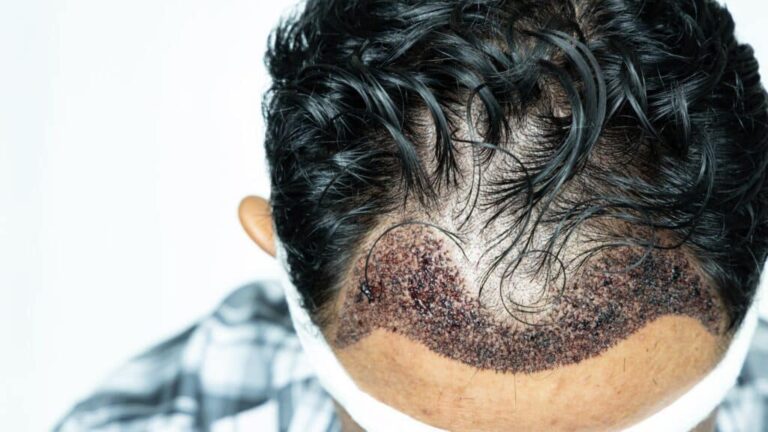How an Orofacial Pain Dentist Can Help Relieve Jaw and Facial Discomfort
Jaw and facial pain can be distressing, persistent, and often misunderstood. Many people suffering from discomfort in these areas may not realize that specialized care exists beyond general dentistry or traditional medicine. Orofacial pain can stem from a variety of causes—such as temporomandibular joint disorders (TMD), muscle tension, nerve-related conditions, or even referred pain from dental issues—and requires a nuanced approach for accurate diagnosis and effective treatment.
In such cases, an orofacial pain dentist plays a key role in identifying and treating these complex conditions. These professionals are trained to assess and manage pain in the head, neck, face, jaw, and mouth that may not respond to conventional dental or medical treatments.
What Is Orofacial Pain?
Orofacial pain refers to pain localized to the mouth, jaw, face, and associated structures. It can range from mild, intermittent aches to severe, chronic pain that affects daily activities such as eating, speaking, and sleeping. This category of pain includes:
- Temporomandibular joint disorders (TMD or TMJ)
- Bruxism (teeth grinding)
- Neuropathic pain (nerve-related pain)
- Myofascial pain (muscle-related)
- Headaches linked to jaw tension
- Persistent dental pain with no identifiable cause
These conditions may result from stress, misaligned bites, dental trauma, sleep disorders, or systemic illnesses, requiring careful evaluation by a dentist with specialized training in orofacial pain.
How an Orofacial Pain Dentist Diagnoses the Problem
Orofacial pain dentists begin with a thorough patient history and examination, focusing not only on the teeth and gums but also on the jaw joints, muscles, nerves, and associated structures. Diagnostic tools may include:
- Imaging studies such as X-rays, CBCT scans, or MRIs
- Bite analysis to assess occlusion (how teeth fit together)
- Palpation of facial muscles and joints to detect tenderness or inflammation
- Evaluation of jaw movement and range of motion
This comprehensive approach helps differentiate between dental and non-dental sources of pain and guides the most appropriate treatment plan.
Treatments Offered by Orofacial Pain Dentists
Depending on the cause and severity of the condition, an orofacial pain dentist may recommend one or more of the following treatments:
1. Oral Appliances and Splints
Custom-made splints or night guards can reduce clenching and grinding, relieve pressure on the temporomandibular joints, and prevent further damage to teeth and muscles.
2. Physical Therapy
Manual therapy and prescribed jaw exercises can help relax tight muscles, improve mobility, and reduce inflammation.
3. Medication Management
In some cases, patients may benefit from anti-inflammatories, muscle relaxants, or nerve pain medications to manage chronic discomfort.
4. Behavioral Therapy
Because stress and anxiety can contribute to or exacerbate orofacial pain, cognitive-behavioral therapy or relaxation techniques may be integrated into the care plan.
5. Injections
Trigger point injections, Botox for muscle tension, or corticosteroid injections for inflammation may be used for targeted pain relief in certain cases.
6. Collaboration with Other Specialists
Orofacial pain dentists often work alongside ENT doctors, neurologists, or physiotherapists to provide comprehensive care, especially for patients with complex or multi-source pain.
When Should You See an Orofacial Pain Specialist?
You may want to consult an orofacial pain dentist if you are experiencing:
- Persistent or recurring facial or jaw pain
- Clicking, popping, or locking of the jaw joint
- Frequent headaches or migraines related to jaw tension
- Difficulty chewing or opening the mouth fully
- Unexplained dental pain without clear dental disease
- Pain that has not responded to conventional dental or medical treatment
Early intervention can prevent the progression of symptoms and reduce the risk of developing chronic pain.
Benefits of Specialized Care
Orofacial pain specialists bring a unique, interdisciplinary approach to diagnosis and management. Their training allows them to:
- Accurately differentiate between various causes of pain
- Provide minimally invasive, conservative treatment options
- Educate patients about lifestyle modifications to reduce symptoms
- Prevent unnecessary procedures by targeting the real source of discomfort
Most importantly, their comprehensive care model can significantly improve the quality of life for those suffering from long-standing or complex pain conditions.
Conclusion
Living with jaw and facial pain can be physically and emotionally draining. However, specialized care from an orofacial pain dentist offers a path to relief and recovery. These experts are equipped to diagnose the underlying causes of orofacial pain and deliver customized treatments that address both the symptoms and their sources. If you’re struggling with unexplained discomfort in your face or jaw, seeking help from a qualified orofacial pain specialist may be the key to long-term relief and restored function.






